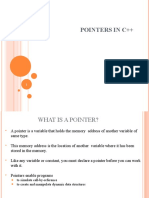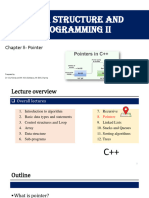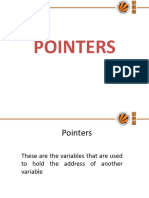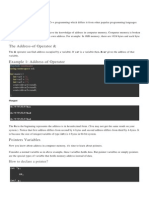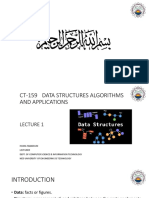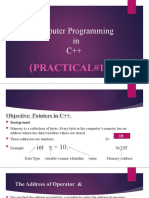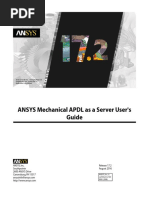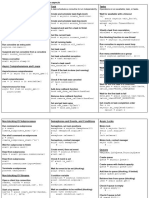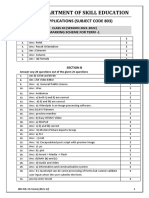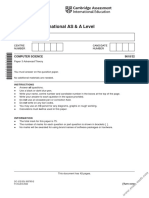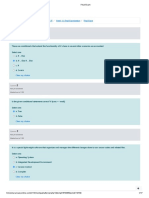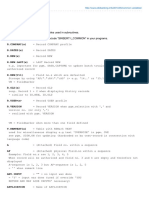0% found this document useful (0 votes)
23 views13 pagesPointer
Chapter six discusses pointers in C++, which are variables that hold the address of another variable, allowing for memory address manipulation and dynamic data structure creation. It explains pointer declaration syntax, the use of reference and dereference operators, and highlights the advantages and uses of pointers in programming. Key benefits include improved execution time, memory management, and the ability to return multiple values from functions.
Uploaded by
Samson GirmaCopyright
© © All Rights Reserved
We take content rights seriously. If you suspect this is your content, claim it here.
Available Formats
Download as PPTX, PDF, TXT or read online on Scribd
0% found this document useful (0 votes)
23 views13 pagesPointer
Chapter six discusses pointers in C++, which are variables that hold the address of another variable, allowing for memory address manipulation and dynamic data structure creation. It explains pointer declaration syntax, the use of reference and dereference operators, and highlights the advantages and uses of pointers in programming. Key benefits include improved execution time, memory management, and the ability to return multiple values from functions.
Uploaded by
Samson GirmaCopyright
© © All Rights Reserved
We take content rights seriously. If you suspect this is your content, claim it here.
Available Formats
Download as PPTX, PDF, TXT or read online on Scribd
/ 13

























